13 Best Herbal Tinctures For Gas In Stomach
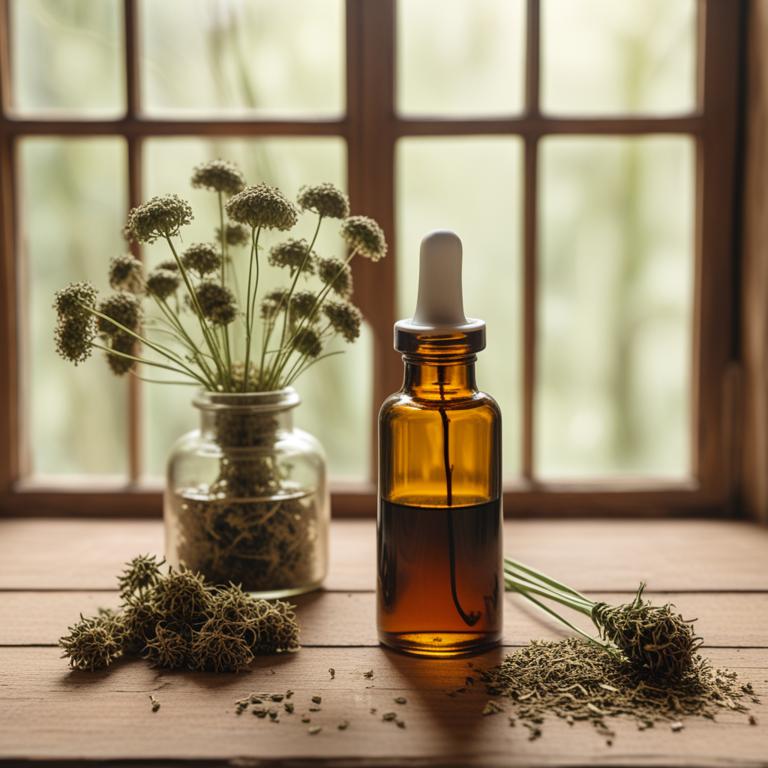
Herbal tinctures for Gas in stomach are concentrated liquid extracts made from herbs, roots, and other plant materials that have been traditionally used to alleviate digestive discomfort and relieve symptoms of gas and bloating.
These tinctures offer numerous benefits, including natural relief from cramps, inflammation, and digestive issues, making them a popular alternative to over-the-counter medications.
Examples of herbal tinctures used to treat gas in the stomach include peppermint, ginger, and fennel, which help to relax the muscles, reduce inflammation, and stimulate digestion, while others like chamomile and lemon balm calm the nervous system and soothe the digestive tract.
Other herbs like dill, caraway, and licorice root also play a role in reducing gas and bloating by easing spasms and promoting the proper functioning of the digestive system.
According to "Clinical gastroenterology and hepatology : the official clinical practice journal of the American Gastroenterological Association", tinctures for gas in stomach, peppermint has supportive evidence for use in patients with dyspepsia, which is characterized by symptoms of indigestion and discomfort in the upper abdomen.
Below there's a list of the 13 best herbal tinctures for gas in stomach.
- 1. Zingiber officinale tinctures
- 2. Glycyrrhiza glabra tinctures
- 3. Cinchona pubescens tinctures
- 4. Gentiana lutea tinctures
- 5. Silybum marianum tinctures
- 6. Peumus boldus tinctures
- 7. Foeniculum vulgare tinctures
- 8. Piper nigrum tinctures
- 9. Curcuma zedoaria tinctures
- 10. Artemisia absinthium tinctures
- 11. Mentha x piperita tinctures
- 12. Rosmarinus officinalis tinctures
- 13. Thymus serpyllum tinctures
Also you may be interested in...
TODAY'S FREE BOUNDLE
Herb Drying Checklist + Herbal Tea Shopping List + Medicinal Herbs Flashcards
Enter you best email address below to receive this bundle (3 product valued $19.95) for FREE + exclusive access to The Aphotecary Letter.
$19.95 -> $0.00
1. Zingiber officinale tinctures

Zingiber officinale tinctures, also known as ginger tinctures, have been used to treat stomach ailments such as gas and bloating due to their anti-inflammatory and carminative properties.
The bioactive constituents of ginger, including gingerols and shogaols, help to relax the muscles in the digestive tract, reducing inflammation and relieving discomfort.
These compounds also have a soothing effect on the digestive system, helping to alleviate symptoms of gas and bloating.
By promoting digestion and reducing inflammation, ginger tinctures offer a natural and effective remedy for stomach discomfort, providing fast relief and promoting overall gut health.
Related Study
According to "Journal of ethnopharmacology", Zingiber officinale tinctures for gas in stomach were found to have an active compound called lariciresinol, which enhanced the antimicrobial potency of berberine and increased the EtBr accumulation, suggesting its potential use in treating gastrointestinal issues.
2. Glycyrrhiza glabra tinctures

Glycyrrhiza glabra tinctures have been traditionally used to treat stomach gas and discomfort due to their anti-inflammatory and carminative properties.
The bioactive constituents of this herbal preparation, including glycyrrhizin and flavonoids, help to reduce inflammation and alleviate gas in the stomach by relaxing the smooth muscle and improving digestion.
By soothing the stomach lining and reducing spasmodic contractions, Glycyrrhiza glabra tinctures provide relief from bloating and discomfort associated with gas in the stomach.
The benefits of using this herbal preparation include improved digestion, reduced inflammation, and enhanced overall gut health, making it a popular natural remedy for stomach gas and discomfort.
Related Study
According to the study, Glycyrrhiza glabra tinctures for gas in stomach are effective in functional dyspepsia, as reported in clinical trials, although its mechanisms of action are not fully understood.
3. Cinchona pubescens tinctures
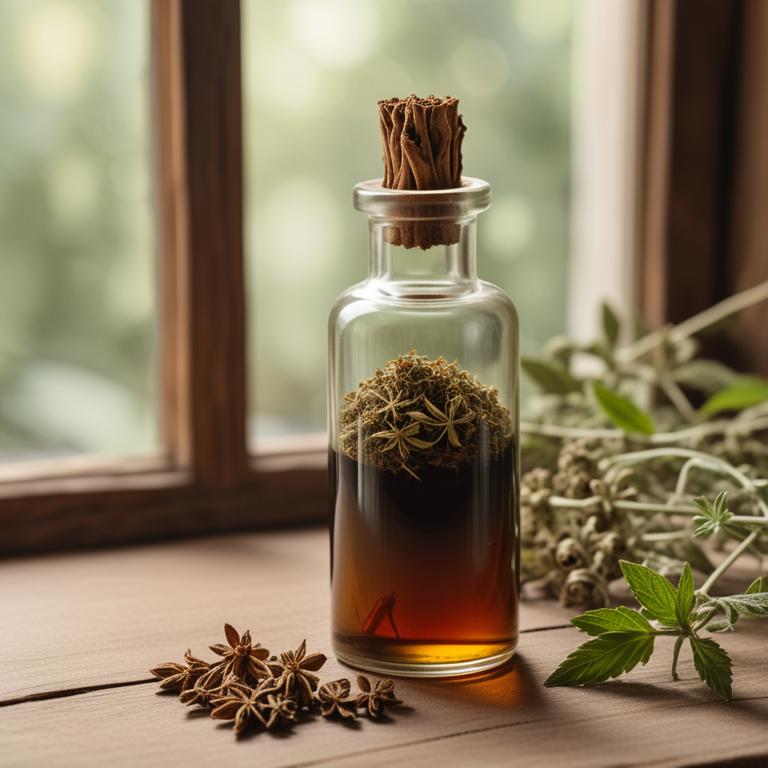
Cinchona pubescens tinctures have been traditionally used to treat stomach ailments such as gas and bloating.
The herbal preparation's anti-inflammatory and antispasmodic properties help to calm the digestive system and relieve discomfort.
The bioactive constituents, including quinine and alkaloids, help to reduce inflammation and relax the muscles in the stomach, thereby alleviating gas and bloating.
The benefits of using Cinchona pubescens tinctures to treat stomach gas and bloating include reduced discomfort, improved digestion, and a natural approach to managing symptoms.
4. Gentiana lutea tinctures
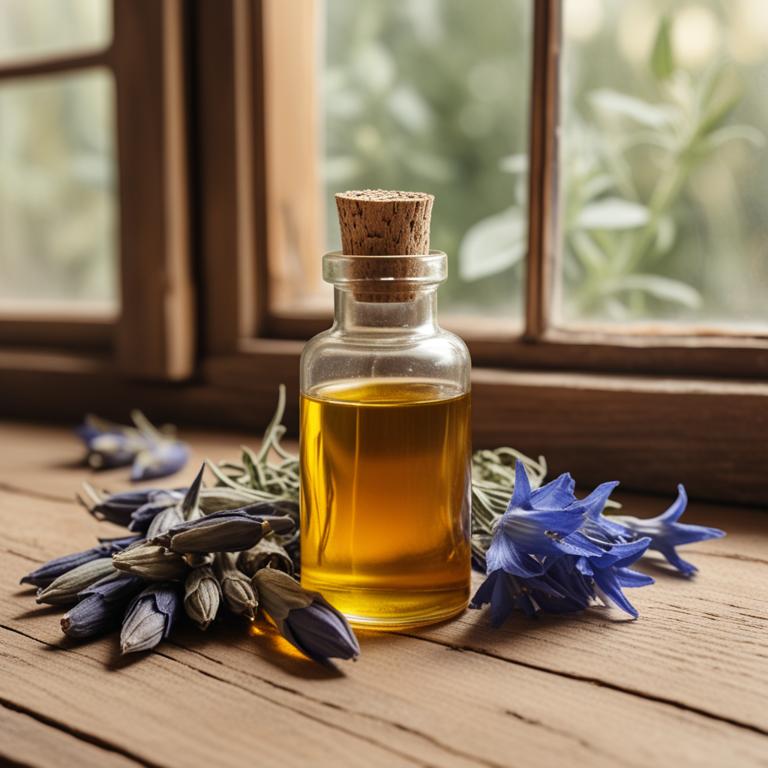
Gentiana lutea tinctures are a herbal preparation used to treat the gas in stomach ailment, commonly known as flatulence.
The properties of this preparation, including its bitter and astringent properties, help to stimulate digestion and alleviate digestive discomfort, making it an effective remedy for treating gas in the stomach.
The bioactive constituents of Gentiana lutea, such as gentiopicroside and amarogentin, have been found to have anti-inflammatory and carminative properties, which help to reduce inflammation and alleviate gas in the stomach.
The benefits of using Gentiana lutea tinctures to treat gas in the stomach include improved digestion, reduced bloating, and alleviation of discomfort, making it a natural and effective remedy for this common ailment.
Related Study
According to "Plants (Basel, Switzerland)", Gentiana lutea tinctures for gas in stomach may be effective due to their spasmolytic activity, primarily mediated through intermediate conductance Ca2+-activated K+ channels, ATP-sensitive K+ channels, and voltage-sensitive K+ channels, which can help alleviate spasmodic gastrointestinal ailments.
5. Silybum marianum tinctures
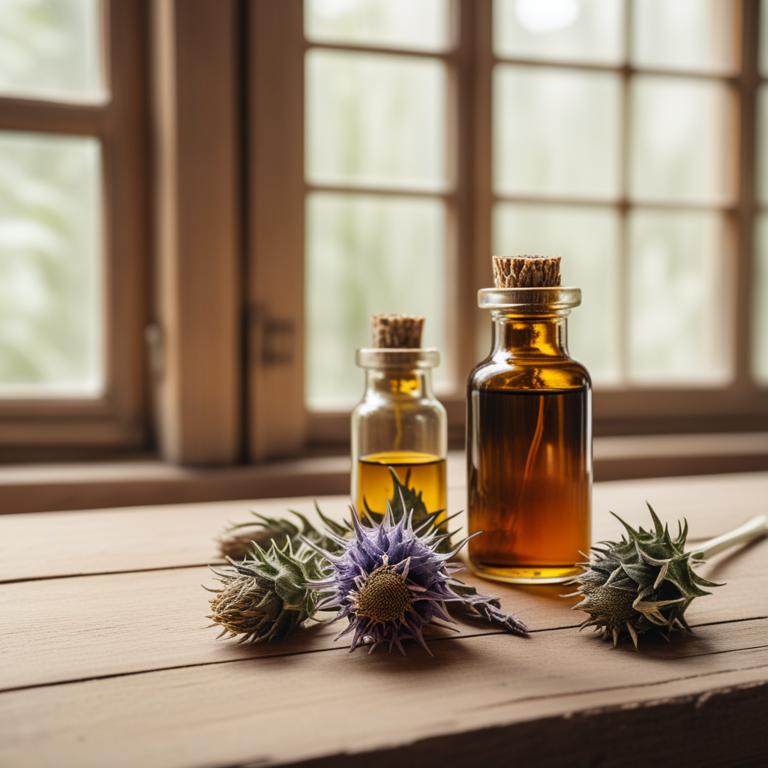
Silybum marianum tinctures have been used to treat stomach ailments such as gas and bloating due to their carminative and anti-inflammatory properties.
These properties help to alleviate the discomfort associated with gas in the stomach by reducing inflammation and promoting the release of trapped gas.
The bioactive constituents of Silybum marianum tinctures, including silymarin and flavonoids, play a crucial role in treating this ailment by reducing oxidative stress and improving gut health.
The benefits of using Silybum marianum tinctures to treat gas in the stomach include reduced symptoms, improved digestion, and enhanced overall gut health.
6. Peumus boldus tinctures
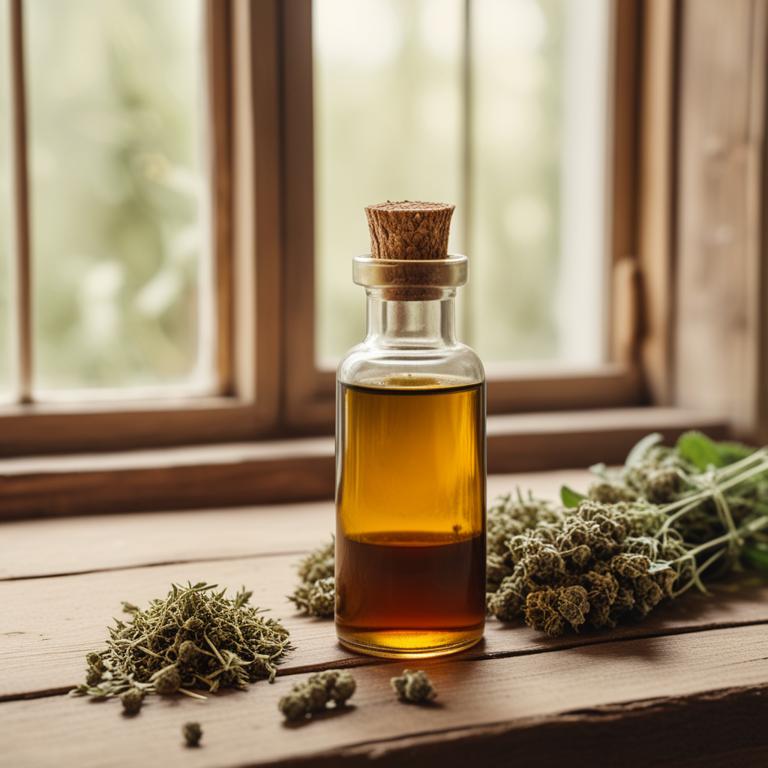
Peumus boldus tinctures are a natural herbal preparation used to treat stomach gas and related ailments.
The properties of this tincture, particularly its anti-inflammatory and carminative properties, help to soothe the digestive system and alleviate discomfort caused by gas.
The bioactive constituents, including boldine, scopoletin, and flavonoids, help to relax the smooth muscles in the digestive tract, reducing spasms and gas buildup.
By using Peumus boldus tinctures, individuals can benefit from improved digestion, reduced bloating, and alleviated stomach discomfort, making it a popular natural remedy for treating stomach gas ailments.
7. Foeniculum vulgare tinctures
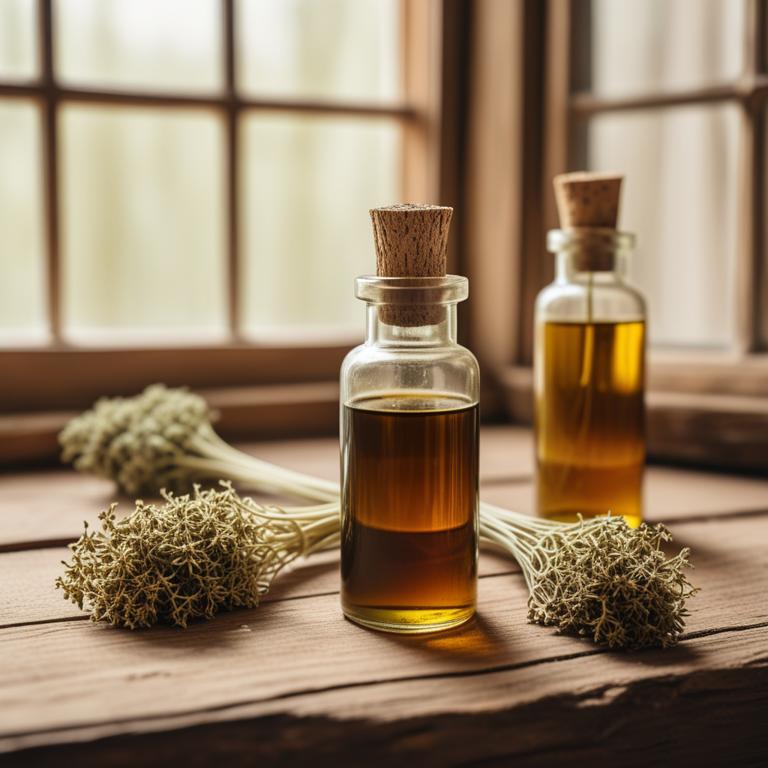
Foeniculum vulgare tinctures have been traditionally used to treat stomach ailments such as gas and indigestion, due to their carminative and anti-inflammatory properties.
The tincture helps to treat these symptoms by relaxing the muscles in the digestive tract, reducing spasms and discomfort.
The bioactive constituents of Foeniculum vulgare, including estragole and fenchone, have been found to possess anti-spasmodic and anti-inflammatory effects, which contribute to their therapeutic benefits in alleviating gas and indigestion.
Regular use of Foeniculum vulgare tinctures has been found to provide relief from stomach discomfort, promote digestion, and reduce the risk of acid reflux and other related disorders.
Related Study
According to the scientific study, Foeniculum vulgare tinctures may be beneficial for gas in the stomach due to their antispasmodic activity, which can help in relaxing smooth muscles in the gastrointestinal tract.
8. Piper nigrum tinctures
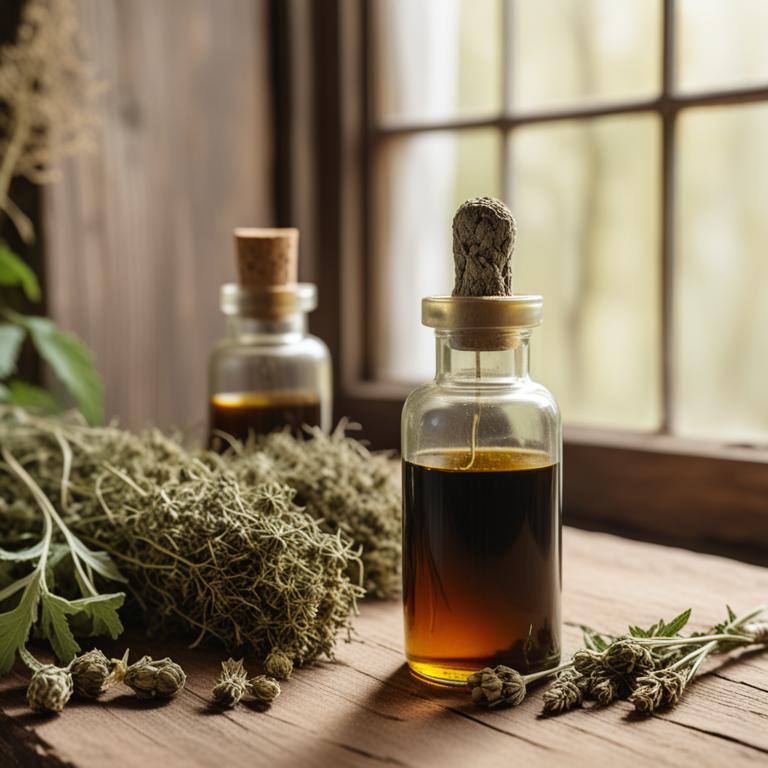
Piper nigrum tinctures, derived from the Black Pepper plant, have been traditionally used to treat stomach gas and bloating.
The bioactive constituents present in Piper nigrum tinctures, including piperine, piperonal, and limonene, exhibit carminative and anti-inflammatory properties that help to alleviate digestive discomfort and reduce gas formation in the stomach.
By stimulating digestive enzymes and improving gut motility, Piper nigrum tinctures help to treat stomach gas and bloating, providing quick relief from discomfort and promoting a sense of well-being.
Regular use of Piper nigrum tinctures can also offer long-term benefits, such as improved digestion, reduced inflammation, and enhanced overall gut health.
9. Curcuma zedoaria tinctures

Curcuma zedoaria tinctures have been traditionally used to treat stomach gas and bloating due to their carminative and anti-inflammatory properties.
The bioactive constituents of Curcuma zedoaria, including curcumenol and curcumenone, help to reduce inflammation and alleviate symptoms of gas and bloating by relaxing the digestive tract muscles.
By reducing inflammation and promoting digestion, Curcuma zedoaria tinctures help to treat stomach gas and bloating, providing relief from discomfort and pain.
The benefits of using Curcuma zedoaria tinctures to treat stomach gas and bloating include reduced inflammation, improved digestion, and alleviation of symptoms, making it a natural and effective remedy for this common ailment.
10. Artemisia absinthium tinctures
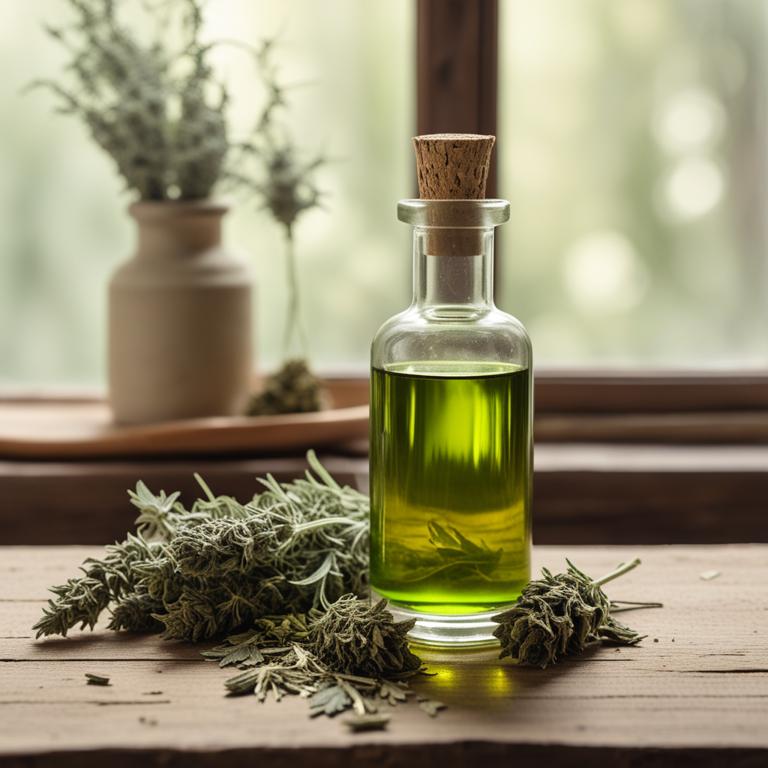
Artemisia absinthium tinctures have been used traditionally to treat the gas in stomach ailment, also known as flatulence.
The herbal preparation's ability to relax the muscles in the digestive tract and reduce inflammation helps to alleviate symptoms of bloating and discomfort.
The bioactive constituents of Artemisia absinthium, including thujone, borneol, and artabsin, possess carminative and antispasmodic properties that contribute to its effectiveness in treating flatulence.
By using Artemisia absinthium tinctures, individuals can experience relief from gas and discomfort, promoting a sense of well-being and digestive comfort.
11. Mentha x piperita tinctures
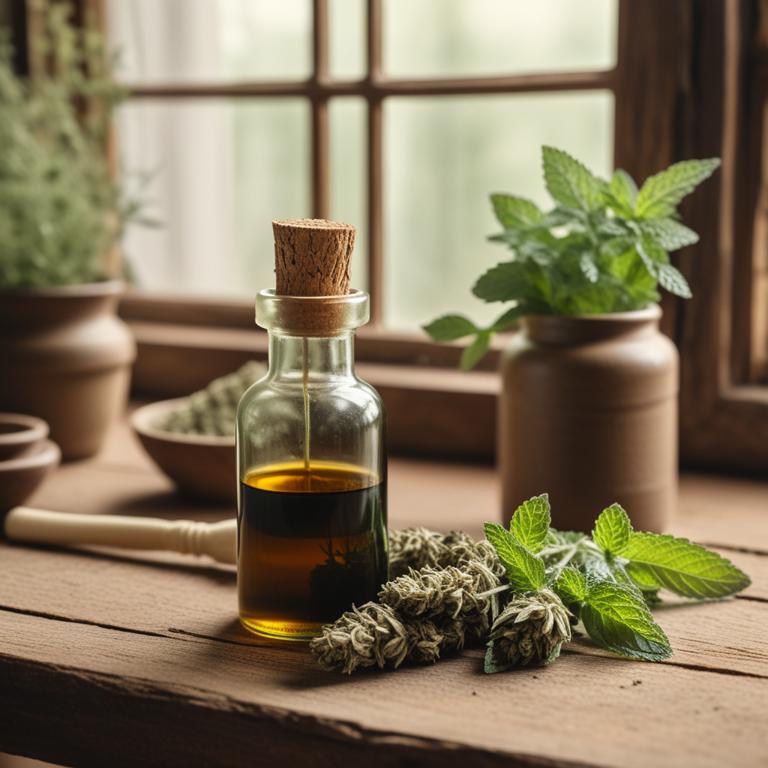
Mentha x piperita tinctures, derived from the peppermint plant, have been used to treat stomach gas and bloating due to their carminative and anti-inflammatory properties.
The bioactive constituents, such as menthol and menthone, help to relax the muscles in the digestive tract and reduce inflammation, thereby alleviating symptoms of gas and discomfort.
By increasing the movement of food through the digestive system and reducing the production of gas, Mentha x piperita tinctures provide relief from stomach gas and bloating.
The benefits of using these tinctures include reduced discomfort, improved digestion, and a decrease in symptoms of irritable bowel syndrome (IBS).
Related Study
According to "Current pharmaceutical biotechnology", Mentha x piperita tinctures for gas in stomach have shown efficacy in managing visceral hypersensitivity, particularly in irritable bowel syndrome (IBS) and dyspepsia, through modulation of TRPV1 and suppression of 5-HT3 receptors.
12. Rosmarinus officinalis tinctures
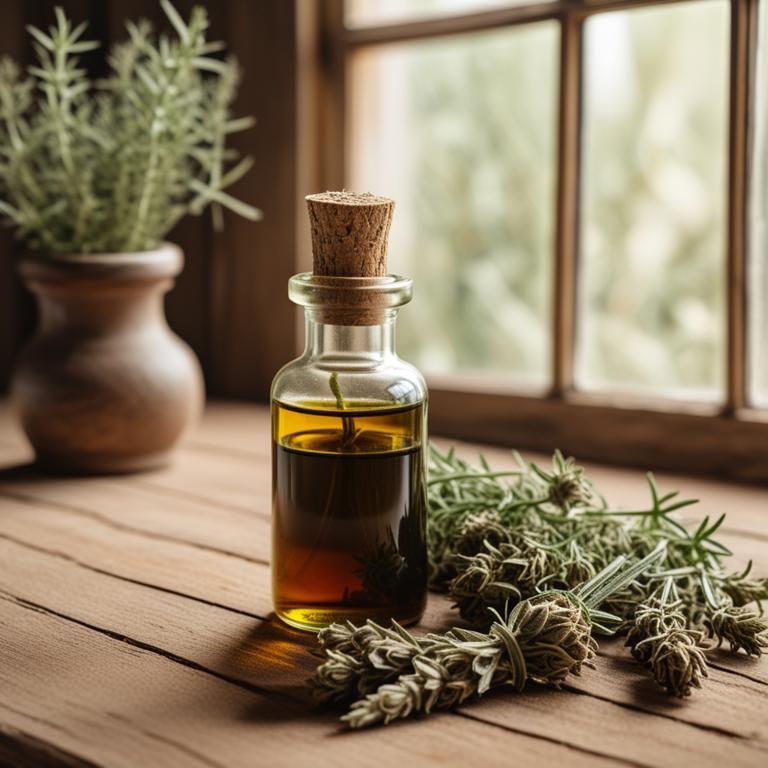
Rosmarinus officinalis tinctures have been used as a natural remedy to alleviate the symptoms of gas in the stomach, commonly known as flatulence.
The anti-inflammatory and carminative properties of this herbal preparation help to soothe the digestive system, reducing discomfort and bloating.
The bioactive constituents, such as rosmarinic acid, camphor, and borneol, in Rosmarinus officinalis tinctures help to relax the muscles in the digestive tract, reducing spasms and gas buildup.
By using Rosmarinus officinalis tinctures, individuals can experience relief from gas in the stomach and promote overall digestive well-being.
Related Study
According to "Journal of ethnopharmacology", Rosmarinus officinalis tinctures for gas in stomach may have a soothing effect on the gastrointestinal mucosa and possibly a carminative effect, which could help alleviate gas and discomfort in the stomach.
13. Thymus serpyllum tinctures
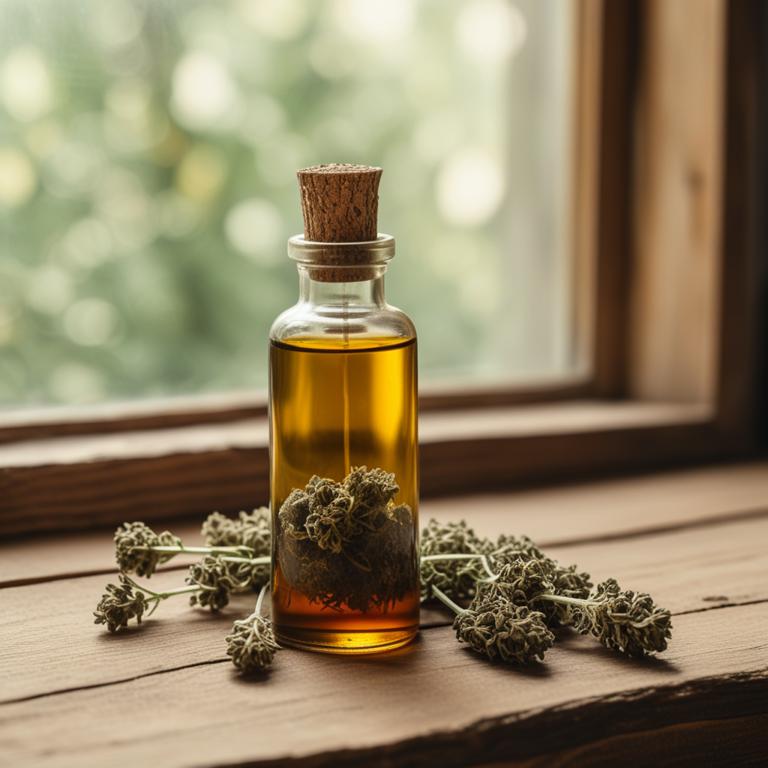
Thymus serpyllum tinctures have been traditionally used to treat stomach gas and alleviate related discomfort.
The antispasmodic properties of thymus serpyllum tinctures help to relax the muscles in the digestive tract, reducing inflammation and spasms that can contribute to gas and bloating.
The bioactive constituents, including thymol and carvacrol, possess carminative properties, which help to release trapped gas and improve digestion.
Regular use of thymus serpyllum tinctures may provide relief from stomach gas and promote a sense of overall well-being, making it a beneficial herbal preparation for individuals experiencing this common ailment.